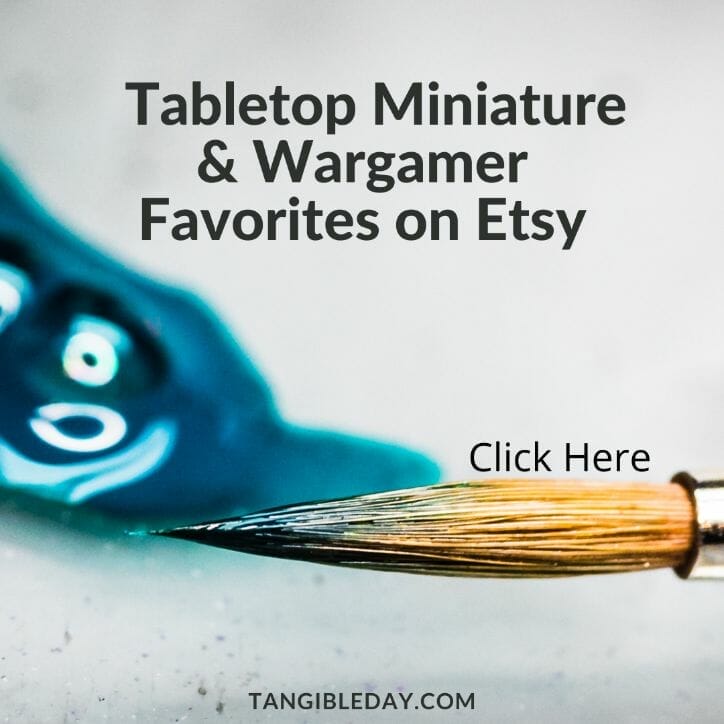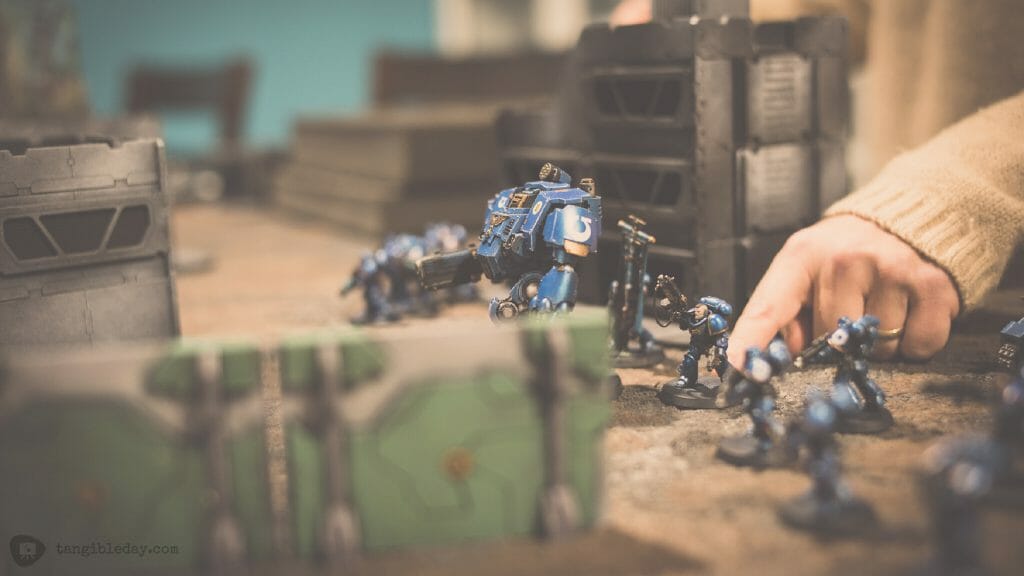Do you play tabletop games? Board games? As I drove home from work I thought about why I enjoy games so much. Role playing games, like Dungeon & Dragons, or board games, or the more elaborate tabletop warfare of the Warhammer Universe; it doesn’t matter: I am enthralled by gameplay.
In this article, I jot down some of my introspective thoughts on the topic of “why do we love games.” Hold tight, it’s a bit of philosophy.
Chaos: A Dice Throw Away from Tragedy
Life is hard. Fragile. Random.
The only thing I’m certain of is uncertainty.

It’s 5:32pm, and raining. The weather itself is a metaphor for life. Who can tell which way the wind blows?
And, as I drive home I think about all the nice things I have going for me. Then, as we all do, we turn to the negative. All the possible dark holes, those bottomless pits from whence we will not return. What if this or that? How about meeting this expectation?
Some people are immune to these trains of thought. They seem to go about life as though their minds are clear and at peace. I wonder what they think about all day. Actually, I think I know.

I’m a bit different and perhaps that is why I am driven to creative hobbies like the ones on this site. I am always looking for ways to direct that energy. All this thinking about possibilities is a turning of a giant wheel in my head. A circle that goes ’round and ’round.
I’ve heard people call this anxiety, but it’s more like a compulsion to not-stay-still in my head. I’m driven to figure things out, and put two-and-two together. Life is a puzzle, and I feel the need to find all the pieces and fill all the gaps. I love it when a plan comes together.
Here’s my thinking on the topic of what drives people toward games. Sure they are “fun”, but why?
Life is a Game, or Not?
When we think of games, we think of non-serious things.
“Oh, it’s only a game… it doesn’t matter.” Isn’t that what we say when we get too serious when we’re playing a board game, or whatever, gameplay you’re in and losing or feeling poorly about.
Gaming brings to mind a few things: board games, video games, or tabletop wargaming. In the latter, miniature representations or models are used to simulate a pitched battle on an imaginary (small) part of a world. There are many rules that govern how a game is played. But, ultimately, any game comes down to a series of actions that work together to form a hopefully satisfying conclusion.

The best games follow four phases of gameplay with a good balance:
- Start Discovery
- Build-up
- Climax
- Conclusion
1. Start Discovery
Discovery and anticipation are the key attributes of the starting phase of any game. Here, you enter the world of gameplay. The opening credits roll and the intro music plays. The setting is created, the pieces (if there are any) start somewhere, ready to head out into the unknown.
You step through a doorway in the Start Phase. Although you may already know the rules, the best games keep the start phase simple and easy to enter-in.
2. Build-Up
Are you drooling, yet? You should be. As a game progresses, the dopamine reward signals in your brain should be kicking in. This is the fun period when you’re starting to feel the flow of the rules within the context of your decisions. In fact, the best games have rules that fall away, and you’re merely “playing”.
Games with good organic gameplay have a superior build-up phase. The start and build-up phases blend together and the transition is seamless. Think about Chess for a moment. If you’ve ever played, the opening moves quickly merge into the the stage where both players have begun to “dance”. Pieces have not traded yet. All the key parts are still on the board.
We are nearing the top of the rollercoaster for the first drop. We can see everything around us, but we are not at the top yet.
3. Climax
The story plot line heads toward a climax. In games, the climax is when all the players have become involved in the plot. The rules have created a tension, a conflict, or some type of trigger point that must be resolved.
The climax is the part of the game that forebodes good or bad.
Paradoxically, in the best games, you play during the climax with no sense of the end, but you feel it coming.
In bad games, there is no climax. In fact, in poorly designed games (or ones you’re not immersed in), you can’t wait until the end.
4. Conclusion
No matter what, you fell in love.
Wait, what?
You either loved your gameplay experience, or loved getting out of it.
I don’t think games have a gray area for experience. Most of the time, the positive or negative experience of playing a game is binary. Sure, you may think that a game is simply “okay”.
But, in fact, if you’re ambiguous about a game, that means you haven’t played it enough.
Play any game enough times, you’ll know whether you loved it (and want to play again), or didn’t love it (e.g., would rather do something else).
RELATED: FOUR PHASES OF A PLAYER’S JOURNEY
And, this is life, isn’t it? You have a set of rules (either external or internal to yourself) and you follow them. If you don’t follow them, sometimes you end up screwing things up…
…or not.

Such is the randomness of it all. So, life is a game where there are some rules that must be followed all the time, and “other rules” that aren’t exactly rules, but more like policy, standard-operating-procedure. For example, things like poor etiquette, rudeness, “being a jerk”, can cause stress and a simple mess. Yet, games don’t come with manufacturer-written rulesets governing human interpersonal behavior.
What Are Rules, Anyway?
Rules are the law. Break a law and you get punished. You went beyond the intention of the game. You cheated.
In fact, the power of the law is granted only by the severity of the punishment for breaking the law.
Break a rule, get punished. In games, when you break a rule, the game breaks. Someone wins who isn’t supposed to. The climax doesn’t happen, or the wind is taken out of the potentially awesome conclusion. It’s a “meh” ending.
That’s punishment in a game. Loss of enjoyment. A waste of time.
In life, breaking some laws lead to a financial or time loss (i.e., a ticket fine or jail time). The more severe the law-breakage, the more severe the punishment. Speed in your car and get a ticket. Kill people and you go to jail or receive a death penalty.
Do you know how messed-up society would be if the punishment for a crime didn’t match fairly? Novels have been written on such tragedies. Steal a loaf bread and get life-in-prison (see one of the best redemptive stories: Les Miserable).

We Love “Breaking Rules”
We are drawn to stories of “breaking bad”, wherein characters turn to a life of crime.
I think part of this intrigue is an intrinsic human compulsion to transcend rules (in other words, go beyond the rules that bind us). We are hard-wired in some way to sense that freedom is derived from a life without rules or laws.
In games, we love rules because they help make a game fun (see above). But, why do some of us find games more fun when we make “house-rules”?
Some rules suck. They are poorly written, confusing, or vague. Maybe, the rules are simply too hard to play as-written. The game is too difficult.
Or, some rules don’t apply to the context of your party of players.
In any case, the rules must be changed to keep the spirit of the game alive.

Who decides what the spirit of the game is? We do, silly. You do.
Wait, why us? Because, we have decided to play the game and we want to have fun. More importantly, if the game is fun, we can play it over and over again. There is no end to the enjoyment if replay-ability is limitless. I know a few video games that have open-source code that allow you to create new games within the framework of the original. Modding lets you replay a game using the same game “assets” as the original box purchase.
Minecraft is explosively popular because it is based on emergent gameplay. It is a game built on “potential”.
Simple Rules to Live By
Two players go head-to-head to achieve victory by satisfying certain victory conditions. Victory can be achieved by removing key pieces from the board, reaching some threshold point-level, or occupying certain places on a spatial map with game pieces. Whatever the case may be in your game, victory is set forth by pre-agreed rules.
Life, like games, have to do with an interaction within a world. You’re trying to get somewhere. There are certain rules or things you do to achieve in pieces (or large chunks) to meet certain goals. For most people, these preset goalposts are visible and defined. For others, they are unclear or hidden. But, for everyone, life moves in a singular direction: to its conclusion.
The equalizer is the conclusion phase, where you’re either in love or not.
In a game, you have entered into a New World, the rules are simple because they are visible and defined. All parties involved know them, follow them (if they aren’t criminals), and if all goes well, have a good time. You enjoy yourself.
Conflict is Normal
All good games have a conflict.
Can you actually play Candy Land without competition and still feel a sense of achievement? Not me. My toddler daughter has tried to solo Chutes and Ladders, but it didn’t last very long.
In games, there is war. There is a contest between multiple forces (2 or more) and we are projected into that conflict. Of course, the relationship between players can be competitive or cooperative (or both, like in the Betrayal at House on the Hill).
It doesn’t matter.
Rules govern how players interact and fight.
Life is the same. We cooperate with each other, or we compete.
Why Do We Love Games?
Games are simple. They reflect life without the punishment for failing to abide by rules. Games allow us to use rules to our advantage to maintain and form relationships with our neighborly gamers. They encourage conflict, which resolve themselves peacefully, and oftentimes with a satisfaction that persists.

We can apply house-rules to accommodate the situation, to clarify ambiguity in player behavior, and to enhance enjoyment by re-calibrating the four phases of gameplay: start, build-up, climax, and conclusion.
Rules govern how we live and interact with each other as people. Sometimes these rules are complicated and vague. Sometimes I don’t enjoy trying to figure out what these rules are and instead will withdraw from participating in a game that I can tell won’t be fun based on badly written rules.
We love games because rules place restrictions on behavior and thought. The rules do not change, and thus a players’s decision tree is simple. Although the outcome conclusion of a game is unknown, at least all the rules were followed. Whether you’re a three-year old, or an 83-year old, both ages can engage in the same game if they understand and follow-the-rules.
Whatever the ending, a game is safe. You’re safe and free to replay again and again.
Games create relationships: a community that never ends.
Life has no clear rules; hence, the confusion and often despair.
I love games, because then real life feels simple.
The Gamification of Life?
I know people who have tried to gamify life to make it more fun and enjoyable. It is true that gamification can help you become more productive by adding an external motivating factor to tasks. Turning mundane tasks into games that reward you for achievement is a powerful tool, making slow progress toward a goal into more bite-sized tangible pieces.
But, life isn’t really a game, is it?
In games, we welcome the start-phase. We scramble up the hill toward the climax. There we openly greet conflict, and look forward to an awesome, satisfying conclusion (even if we lose).
In life, none of this is true.
Life is the opposite of games.

We never choose to be born. We fight hard to reach some life climax (e.g., buy a home, career, create a family), oftentimes entering into unexpected conflict with utter failure in many cases. Nobody looks forward to life’s conclusion. And, there’s no replay-ability.
Problematic.
Final Thoughts
I titled this post “Why Tabletop Games?”. I love games, because they are the route for me to build-relationships with all kinds of people whom I don’t think I have anything in common with. They are a “thing” in which I find a global community.
Although our lives may differ, e.g., culturally, whatever, in games it all comes to naught. Games are a great equalizer for people.
Take a look at sport games. The Olympic Games held every few years brings the globe together.
If only for a short period of time, there is peace on the field of play.
Peace that reigns over so many people from all walks of life…It’s a miracle.
Games are a gift, really.
That’s life.



Tangible Day on YouTube (Miniatures and More!)


Pingback: Looking for the forest – Kerry Hood